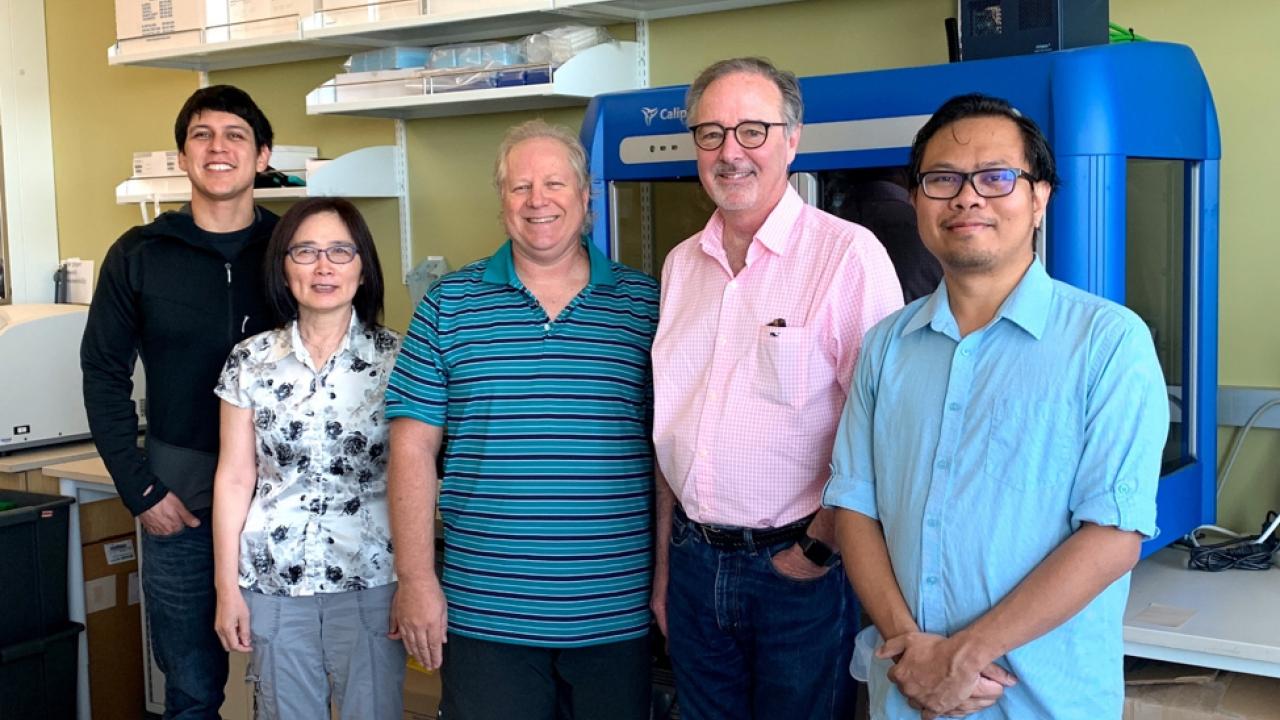
A diazotrophic microbiome associated with maize reduces dependence on N fertilization
Principal Investigator
Weimer, Bart
Research Team
- PI – Bart Weimer (SVM:PHR)
- Co-PI – Alan Bennett (CAES:Plant Science)
- Shawn Higdon (PhD student)
- Darwin Bandoy (PhD student)
- Carol Huang (Researcher)
Sponsor
USDA National Institute for Food and Agriculture (NIFA)
Award Amount
$748,879
Abstract
Plants grow in close association with microbial communities that influence plant traits related to nutrient acquisition, plant defense, plant morphology and abiotic stress tolerance. The co-evolution between plants and their associated microbial communities enables plants to produce an immune system-like response as well as provide nutrients and minerals for plant growth and health. Isolation of a collection of microbes from the associated corn microbiome in a unique oligosaccharide mixture that collects on aerial roots provided evidence that nitrogen can be fixed by many members of the microbiome. This unexpected result was replicated in 600 different isolates using molecular mechanisms that are found in other bacteria (~30%) in addition to novel mechanisms that do not use the same gene sets (~70%) of the isolates. This proposal seeks to understand novel mechanisms bacteria use within the microbiome to fix nitrogen.
